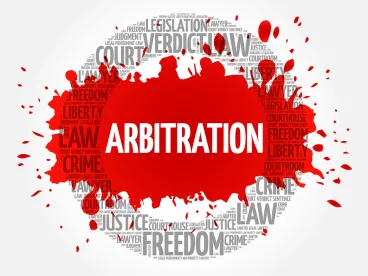On 15 June, 2022, the Supreme Court of the United States (SCOTUS) delivered the 8-1 opinion in the matter Viking River Cruises, Inc. v. Moriana, which held that the California Supreme Court decision of Iskanian v. CLS Transportation Los Angeles, LLC, 59 Cal. 4th 348 (2014), is partly preempted by the Federal Arbitration Act (FAA). Under Iskanian, claims under California’s Private Attorney General Act (PAGA) were exempted from arbitration agreements and the ambit of the FAA, such that these claims could not be waived and could not be arbitrated on an individual basis.
BACKGROUND
Plaintiff Angie Moriana was hired by Viking River Cruises, Inc. (Viking) as a sales representative. Viking offers ocean and river cruises around the world. Moriana signed an agreement to arbitrate any dispute arising out of her employment. The arbitration agreement contained a class action waiver that provided the parties could not bring any dispute as a class, collective or representative action under PAGA. The agreement also included a severability clause that stated if any part of the agreement was invalid, including the waiver of a PAGA action, the court should strike the invalid portions and enforce the remainder of the agreement.
After her employment with Viking ended, Moriana filed a PAGA action against Viking in California state court. The complaint asserted Moriana was not timely paid upon termination of employment. The complaint further asserted various other Labor Code violations purportedly suffered by other Viking employees, including failure to pay minimum wage and overtime, failure to provide meal and rest periods, failure to timely pay wages upon termination of employment, and failure to provide inaccurate wage statements.
Viking moved to compel to arbitration Moriana’s individual PAGA claims – the claims for violations she allegedly suffered personally – and to dismiss the remaining representative PAGA claims. The trial court denied the motion and the California Court of Appeal affirmed, holding categorical waivers of PAGA standing are contrary to state policy and that PAGA claims cannot be split into arbitrable individual claims and nonarbitrable representative claims. In reaching their conclusion, the California Court of Appeal followed the precedent set by the California Supreme Court in Iskanian. The California Supreme Court declined review, and Viking appealed to SCOTUS.
Justice Samuel Alito delivered the 8-1 opinion of the SCOTUS, which reversed and remanded the decision of the California Court of Appeal.
THE SCOTUS DECISION
Categorical Waivers of PAGA Regardless of Forum Remain Invalid
SCOTUS is clear that a wholesale waiver of an employee’s right to bring a PAGA claim, regardless of forum, continues to be invalid and is not preempted by the FAA. Viking argued that its arbitration agreement with Moriana should be enforced according to its terms; that is, a PAGA representative action waiver should be enforced in the same way a class action waiver is enforceable in an arbitration agreement, pursuant to the Court’s precedents in cases such as AT&T Mobility LLC v. Concepcion, 563 U.S. 333 (2011) and Lamps Plus, Inc. v. Varela, 587 U.S. __ (2019).
Specifically, Viking argued Moriana agreed to arbitrate her claims against Viking so any claims she asserts can only proceed in arbitration. Once in arbitration, however, she should be limited to her individual claims. This is because, like class claims, PAGA claims are brought on behalf of absent employees, making the nature of the proceeding change from a bilateral arbitration to a class-action/representative arbitration, resulting in procedural complications which are inconsistent with the bilateral and informal nature of arbitration contemplated by the FAA.
The Court disagreed with Viking’s reasoning, emphasizing that the FAA has never mandated enforcement of all forms of representative waivers. It also opined that the nature of PAGA as a claim by the state makes the procedural and due process mechanisms of class actions unnecessary. Instead, SCOTUS analogized PAGA claims to representative actions such as shareholder-derivative suits, wrongful death claims and trustee actions, and noted that such actions are common in arbitration. Therefore, nothing in the FAA or the inherent nature of arbitration mandates the enforcement of a wholesale PAGA waiver.
PAGA Claims Can be Split into Arbitrable Individual Claims and Representative Claims
Iskanian invalidated agreements that called for arbitration of a plaintiff’s PAGA claims brought for violations suffered personally by the plaintiff (Individual PAGA Claims) as separate claims from PAGA claims brought on behalf of other employees (Representative PAGA Claims). SCOTUS held this indivisibility of Individual and Representative PAGA Claims to be preempted by the FAA.
The consequences of this holding are two-fold:
-
Individual PAGA Claims may be compelled to arbitration; and
-
Representative PAGA Claims cannot be brought by an employee whose Individual PAGA Claims are subject to arbitration, because once the Individual PAGA Claims are pared from the Representative PAGA claims, the plaintiff no longer has statutory standing to bring any Representative PAGA Claim in a separate action.
The holding is based on PAGA’s unique procedural mechanism, which the Court described as “effectively a rule of claim joinder.” PAGA provides that any employee who suffers a single Labor Code violation can use that violation as a gateway to seek PAGA penalties on behalf of other employees for any other Labor Code violation enumerated under PAGA, regardless of whether the plaintiff, personally, suffered a violation of these statutes. In Moriana’s case, she allegedly suffered only a claim for failure to timely pay wages at termination, but under Iskanian, she could bring claims for overtime and break violations suffered by other employees.
SCOTUS reasoned that this “expansive rule of joinder” deprived the parties of the ability to agree on which claims are subject to arbitration, because the claims asserted under PAGA on behalf of other employees may be entirely unrelated to the relationship between the plaintiff and employer. Indeed, under Iskanian,“[t]he only way for parties to agree to arbitrate one of an employee’s PAGA claims is to also ‘agree’ to arbitrate all other PAGA claims in the same arbitral proceeding.”
This effectively coerced the employer into foregoing arbitration altogether because only litigation would afford it the opportunity for appellate review of representative claims. This coercive choice is contrary to the FAA, under which the parties must be permitted to separately contract and consent to arbitration of Individual PAGA Claims. As a result, the Court held Viking is entitled to arbitration of Moriana’s individual PAGA claims.
SCOTUS further instructed that Moriana’s remaining Representative PAGA Claims be dismissed by the California courts, because PAGA limits statutory standing to “aggrieved employees,” meaning “any person who was employed by the alleged violator and against whom one or more of the alleged violations was committed.”1 Once Moriana’s individual claims are committed to a separate action, Moriana is no longer “aggrieved” for purposes of the Representative PAGA Claims, and lacks statutory standing to prosecute the remaining representative claims.
WHAT DOES THIS MEAN FOR EMPLOYERS?
Review or Implement Arbitration Agreements
SCOTUS’s opinion in Viking River Cruises provides some clarity on the scope of arbitrability of PAGA actions. Employers should, with the guidance of legal counsel, review any existing arbitration agreements to ensure that they are consistent with Viking River Cruises. In addition, employers without existing arbitration agreements should consider implementing them, carefully considering all relevant factors.
Further, arbitration agreements should be drafted to allow the employer to compel an employee’s individual PAGA claims to arbitration, and not provide that employees are waiving their right to bring PAGA claims on a wholesale manner. The agreements should, however, include “representative actions” in its class action waiver language along with class and collective actions.
Lastly, the Viking River Cruises decision emphasized the effectiveness and saving grace of a carefully worded severability provision. Absent the severability provision in the Viking-Moriana arbitration agreement, it is possible that the Court could have invalidated the entire arbitration agreement based on the waiver of PAGA claims in any forum (which remains invalid).
Potential Impact on Iskanian Progeny
Justice Sotomayor’s concurring opinion suggested the California courts still have an opportunity to correct any “misunderstanding” that SCOTUS may have had regarding Moriana’s statutory standing to continue with the Representative PAGA Claims in court, regardless of separation of her Individual PAGA Claim. This concurring opinion suggests the issue of standing is open to dispute in future cases. Even if not otherwise disputed, the legislature is notified of its ability to act to expand the scope of standing.
Finally, while the Court did not reach the issue of penalties, the Viking River Cruises decision potentially impacts Iskanian progeny, including Kim v. Reins International California, Inc., 9 Cal. 5th 73 (2020) which discusses an employee’s right to recover civil penalties on behalf of the state, even for violations not suffered individually by the plaintiff.
ENDNOTES
1 Cal. Labor Code § 2699(c).







 />i
/>i

